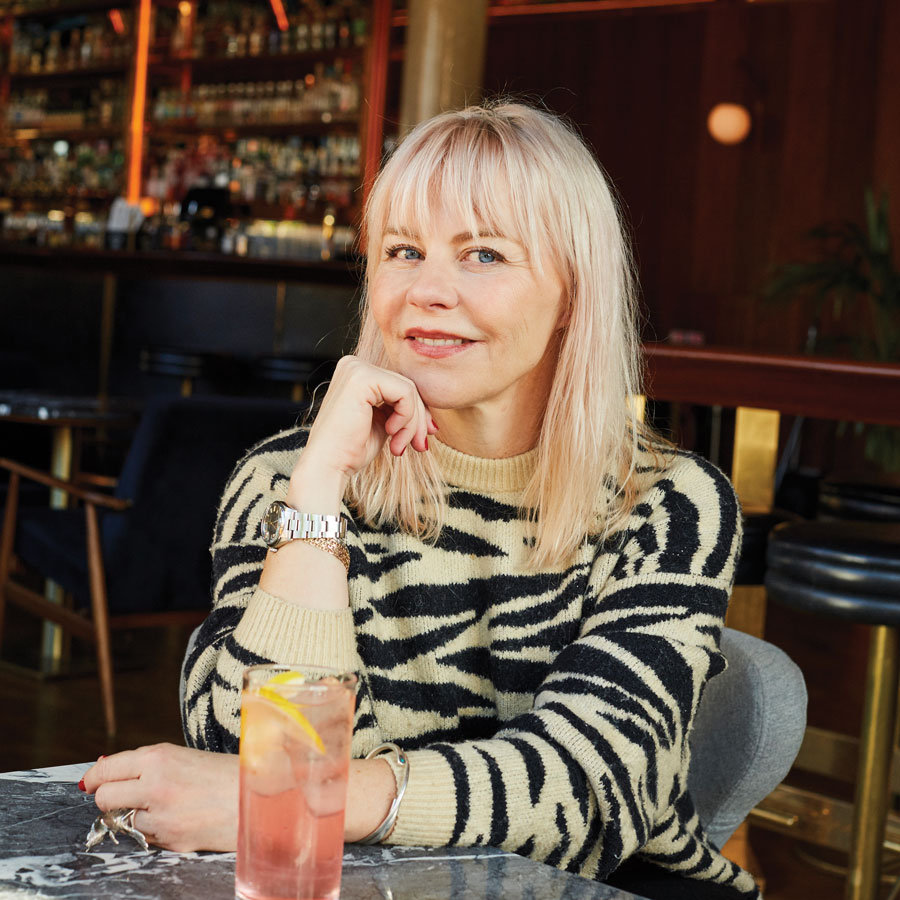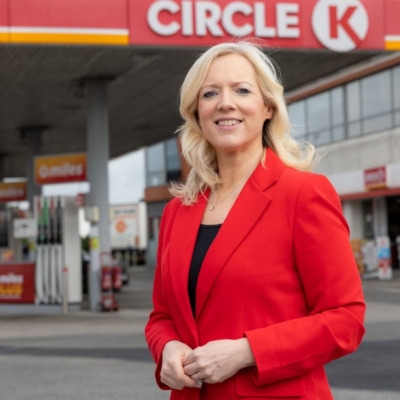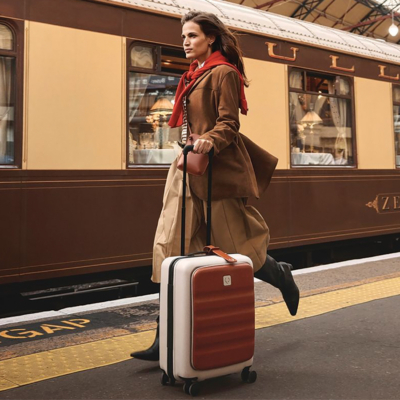Maria Neuman has some advice for being sober this time of year – plus here are some tips from Drinkaware on approaching Sober October …
It was a New Year’s Eve, sometime during the 2010s, in a tiny corner of West London. One of those chilly eves where there is a human log jam in the foyer of men and women shimmying out of puffer coats, hats, gloves, and scarves, to reveal the sartorial benchmarks of NYE – sequins for her, and bow-tie for him. Everyone looked fabulous. As the affable host took my jacket, he casually dropped, “Can I get you something to drink, vodka tonic? Glass of champagne?” “Oh I don’t drink, sparkling water is fine,” I said casually. “Oh you don’t drink? Well, in that case how about a glass of wine?” “Ehrm, I don’t drink alcohol, so sparkling water is great if you have any,” (insert over-compensating smile from me, baffled stare from him).
I have had various iterations of this exchange over the years, and it doesn’t bother me anymore, partially due to my age and feeling less prickly in my skin, and partially due to a slow societal acceptance that – wait for it – not everyone drinks, and reasons are varied. While I wouldn’t say abstaining is trending, it has garnered a new awareness, acceptance and curiosity that makes one feel less of an oddball cradling a mocktail, or one of the myriad non-alcoholic beers or lagers. Pop up to any bar these days and they’ll rattle off a list of alcohol-free options.
I moved to Dublin in August this year, after 25 years of living in Los Angeles, which I have learned is possibly the global command centre of sobriety for reasons ranging from the proliferation of creatives with addiction issues, to the more wellness-minded who refuse to miss their pre-dawn yoga class (in case you’re wondering, I am the former). So, when I mentioned to my LA friends that I was moving back to Europe, specifically Ireland, to be closer to my family in Sweden and the UK (and downsize my $700-a-month health insurance bill) one of the first questions was often, “Doesn’t everyone drink there?” or, “I was there for a wedding and everyone was hammered. Aren’t you nervous?”
“While I can’t be your sober coach for the season (that’s probably just an LA thing anyway) I can tell you it’s 100 per cent possible to survive it without imbibing.”
Not really. I’ve spent years (20 to be exact) politely declining beer, wine, cocktails, shots, hot toddies, boozy desserts, and anything in a giant glass with an umbrella in it. While being sober doesn’t make me Mother Theresa by any means, on most days, I really do feel like a functioning adult with a curiosity and gratitude for my life. On days that I don’t, my coping mechanisms are chocolate and scouring the internet for obscure Japanese denim lines and vintage furniture (neither of these are cheap predilections, sadly, so there are a lot of abandoned online carts in my browser history).
I know that not everyone here drinks, but, in my opinion, in most countries it is considered an integral part of social life and social interactions, and during the holiday season, it can feel like a marathon sprint between work drinks, hot toddy weekends, parties and family lunches that can come with their own grab-bag of dynamics and emotions. While I can’t be your sober coach for the season (that’s probably just an LA thing anyway) I can tell you it’s 100 per cent possible to survive it without imbibing.
Early on in my sobriety, I found all parties nail-biting (literally), and was given a golden piece of advice from a woman in Alcoholics Anonymous that I still use to this day. “Be one of the first to show up, get some good facetime with your host, help set up, get your mocktail, and leave when most people are easing into their third or fourth drink. Don’t even say goodbye, no one will notice.” Little did I know that I have been rehearsing my “Irish Goodbye” since 2003, and am now a master. When you’re pouring your fourth glass of wine, I’m quietly plotting how quickly I can get back to my sofa.
Some other ways to dodge the questions about why you’re not drinking? One friend says she always slips a slice of lime into her sparkling water because everyone assumes she’s nursing a cocktail. I’ll add raspberries, a sprig of thyme or lavender to that list, or a cinnamon stick to any warm drink impersonating a toddy. If you’re looking to avoid interrogations about your lifestyle choices there’s also a slew of harmless lies such as being on a course of antibiotics, allergy flare-ups, or a pending migraine (none of these are party starters per se, but will get the job done). The bottom line is, if you don’t feel confident talking about it, don’t.
When it comes to my own sobriety, I’m always happy to answer any questions if someone is genuinely curious, but it’s not something I talk about that much, mainly because it’s not really anyone’s business and, in my experience, not a decision anyone ever reaches lightly. Also, while I can say that being sober has unequivocally changed my life, I find expounding on it instantly makes me a dullard and the conversation equivalent of discussing your taxes or therapy.
So, slip on your favourite heels and arrive with an armload of non-alcoholic beer or lager, artisan cordials (my personal pick is Naturally Cordial’s Blackcurrant), or as my considerate friend, Phi, in Los Angeles does, make a shrub – a gently fizzy mix of fruits, sugar and cider vinegar – and bring it with you in a vintage jar with a holiday bow tied around the neck. It mixes equally well with sparkling water, wine or tequila, so will be appreciated by all.
Before you know it, December will be in the rear view mirror, everyone will have moved onto Dry January, and they’ll be texting you asking for that shrub recipe. @tinywonderful
Here are some tips for Drinkaware on how to approach a Sober October:
1. Set goals: Having clear purpose will help keep you motivated throughout the month. Write your goals down and refer back to them whenever you need a reminder of why you started.
2. Try new activities: When we give something up, it is a natural response to want to replace it with something else.
3. Document your journey: Keep a journal and note any changes in your mood, energy levels, sleep patterns and overall health. Tracking your progress can be incredibly rewarding and provides tangible proof of the benefits of going alcohol-free.
4. Stay connected: Join a community of others participating in Sober October.










